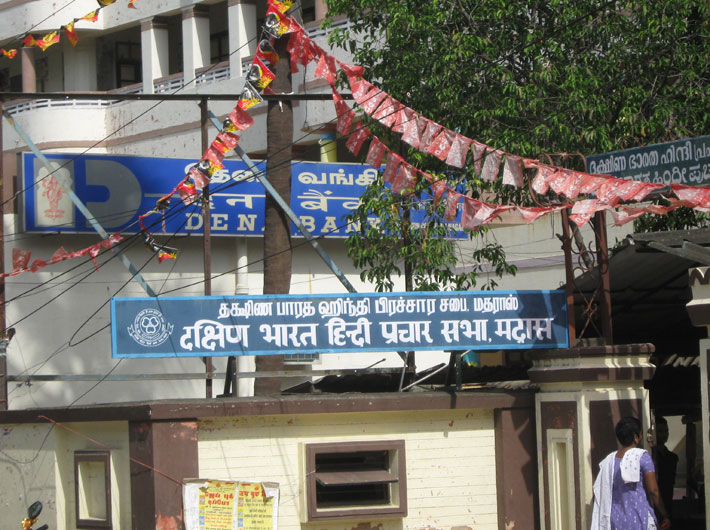Hindi spreads fast in Thalaivar land!
Hindi today is the most popular third language for Tamil Nadu’s younger generation

Language, for sure, is a sensitive issue in India. It was in the 1960s, when the anti-Hindi protests took place in Tamil Nadu, often taking violent turn. It still is, when the union home ministry issued an order recently, making Hindi the official language on social media for all ministries and government offices and departments to communicate in Hindi.
It was during the anti-Hindi movement that Tamil Nadu, as indeed the rest of India, saw the rise of Muthuvel Karunanidhi as a Dravida leader. It was the same movement that threw the Congress out of power in the state, and the party hasn’t been able to come back to power till date.
But it is equally true that the state is experiencing a new-found fascination for the language – at least over the past decade. From auto-rickshaw drivers to shopkeepers, most people try to speak Hindi, as this correspondent, who comes from the Hindi heartland, has found out in the last two years in Chennai. In the land of Thalaivar Rajinikanth, Bollywood films and songs are quite welcome these days.
What’s more, even politicians are learning Hindi to be able to make an impact in Delhi – chief minister J Jayalalithaa, for instance, is quite comfortable speaking Hindi.
While the provincial government has tried making Hindi compulsory in schools even in British India, and the anti-Hindi “imposition” protests and movements have kept pace since, Hindi today is the most popular third language for Tamil Nadu’s younger generation. Going by data provided by the Chennai-based Dakshina Bharat Hindi Prachar Sabha, 2,94,457 students appeared for Hindi Prachar Sabha examinations in Tamil Nadu in 2011, with the number increasing to 3,77,290 in 2012 and 4,36,860 in 2013.
In Chennai alone, the figure was 78,936 in 2011, 98,369 the following year and 1,11,157 in 2013.
Dakshina Bharat Hindi Prachar Sabha was established in 1918 by Mahatma Gandhi with the objective of propagating Hindi in south India. Gandhi wanted to unify the people through a common language and thereby intensify national integration.
Five years later, Dakshina Bharat Hindi Prachar Sabha emerged as an independent organisation in 1927.
While R Rajavel, general secretary of the organisation, said, “(Our) strength is increasing every year,” most office-bearers were hesitant in furnishing details and did not want to elaborate on the issue. “Since we are in Tamil Nadu we don’t want to be quoted. Things are different in Andhra Pradesh, Karnataka and Kerala,” one office-bearer said.
Significantly, reports say there is now a growing demand for compulsory Hindi education in state board schools. In the first week of June, several Tamil Nadu schools, under the aegis of an association, moved the Madras high court against the state government’s decision making Tamil a compulsory language paper in Class X.
The Tamil Nadu Tamil Learning Act came into existence in June 2006, and officials were appointed in April 2012 for implementing the law. On February 10 this year, the director of matriculation schools issued a letter saying the Tamil Learning Act for Class X would be implemented from 2015-16 academic year and asked schools to report on the decision to make Tamil compulsory for students.
In the writ petition, the association of matriculation higher secondary schools and their managements in Tamil Nadu and Puducherry said though the legislation was enacted in 2006, it was not implemented since no rules had been framed by the government.
As of now, each school gives its students the option to opt for any language available, including Tamil, Hindi, German and French.
Most people in Chennai Governance Now spoke with said it will be a long time before the majority is comfortable with directives such as the latest by the Centre, asking officers and ministers to use Hindi as the official language on social media. C Lakshmanan, who teaches at Madras Institute of Development Studies, said people should be given a choice, and if they wish to learn Hindi there is nothing wrong in it.
While perspectives have changed since the mid-sixties, and people have realised that learning Hindi is advantageous since it is one pan-India language besides English, analysts suggest political parties should not decide the language/s people should learn.

